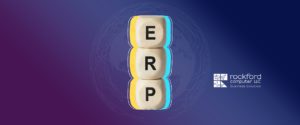The hybrid and remote work transition has taken a new turn in the UAE, changing the way companies operate. Companies belonging to industries like real estate and healthcare have their challenges regarding keeping employees engaged, satisfied, and productive. In 2025, HRMS is becoming the key to such problems.
This article will discuss how an HRMS promotes a better employee experience, prevents burnout, strengthens company culture, and influences business outcomes with case scenarios from the UAE.
Employee Experience: How HRMS Helps
Customized Employee Development
The HRMS platforms of 2025 are tailored toward individual growth:
- Personal Learning Paths: Customized learning paths based on employee roles and career development.
- Recognition Programs: The automated system celebrates milestones and achievements to uplift morale.
- Improved Communication: Centralized feedback platforms make employees’ voices heard and valued.
These features lead to better satisfaction and a drastic improvement in employee retention. For instance, a leading healthcare provider in Sharjah implemented HRMS to create customized development plans for nurses, which resulted in a 15% increase in employee satisfaction scores.
Work-Life Balance and Prevention of Burnout
Burnout is one of the most critical issues when it comes to remote work. HRMS addresses this with tools like:
- Flexible Scheduling: Employees could finally manage their time effectively.
- Mental Health Resources: Wellness resources include virtual counseling sessions and mindfulness activities.
- Real-time analytics: spot overwork signals for proactive solutions.
For example, Dubai developer Amlak Finance used this HRMS technology to make shift scheduling among its employees optimal across different construction sites. In their case, productivity gained 10 percent, with signs of low burning reduced.
Building a Positive Company Culture
Workplace Culture Which Ensures Equality and Connectivity
HRMS also helps organizations build a good company culture, like if the teams were collocated, by facilitating a variety of team collaboration tools on virtual platforms, monitoring analytics on workplace diversity, and driving continuous improvements in the culture of an organization through employee engagement surveys.
These tools help in building a culture of inclusivity and engagement. A healthcare provider in Dubai used HRMS to build up an inclusive and engaging culture that saw a reduction in turnover rates by 8%.
Strengthening Relationships with Remote Teams
HRMS bridges the gap between office staff and on-site workers involved in the real estate industry. A house in Abu Dhabi aligns on-site and office teams to project goals through unified dashboards and mobile apps, aligning and amplifying the productivity of the teams in all respects.
Business Value of HRMS
Quantifying the Return on Investment of HRMS
Investment in HRMS assures quantifiable benefits accruing to the investor firms in:
- Efficiency Gains: Automation in payroll, attendance, and compliance reduces errors caused by humans.
- Cost Reduction: Smoothened workflows reduce administrative costs.
- Improved Retention: Personalized experiences and wellness programs improve employee loyalty.
For instance, a real estate company in Dubai reduced administrative overhead by 25% using an AI-powered HRMS; this freed up managers to spend more time on strategic activities.
Industry-Specific Benefits
- Real Estate: HRMS helps track employee productivity across a company’s various sites, improving overall project completion rates. A top real estate developer in Dubai increased completion rates by 10% with HRMS.
- Healthcare: Optimizing nurse schedules using HRMS not only ensures an efficient staffing pattern but also positively impacts quality patient care. A large hospital network based in Abu Dhabi applied HRMS to reduce nurse turnover by 5% while concurrently improving patient flow by 15% through reduced waiting times.
Emerging Technologies Shaping HRMS
Artificial Intelligence and Machine Learning
AI-driven HRMS solutions offer:
- Predictive Analytics: Forecasting engagement trends and employee attrition risks.
- Sentiment Analysis: Monitoring employee morale through feedback.
- Automated Workflows: Streamlining recruitment, onboarding, and performance reviews.
These capabilities help businesses stay ahead by improving HR operations and ensuring a positive work environment.
Blockchain for Data Security
Blockchain enhances HRMS security by:
- Data Integrity: Accuracy and confidentiality of employee records.
- Transparent Audits: Compliant record-keeping in a secure manner.
This ensures that HRMS platforms meet the highest security standards, which is particularly important in healthcare sectors.
Future Trends in HRMS and Remote Work
Gamification and Employee Engagement
HRMS systems are now using gamification to increase engagement:
- Interactive Dashboards: Employees are rewarded for reaching goals and milestones.
- Virtual Team-Building: Activities are available to strengthen the bonds of remote teams.
This trend makes HRMS more interactive, allowing employees and employers to have fun while monitoring and enhancing performance.
Focus on Employee Well-Being
HRMS will continue to give importance to employee wellness through the following tools:
- Personalized Wellness Plans: Providing personalized health programs for mental and physical well-being.
- AI Chatbots: Offering immediate assistance for employee concerns and queries.
These tools are a reflection of the increasing awareness of employee well-being in today’s workplace.
Conclusion: HRMS is Imperative to 2025’s Workforce
In the end, HRMS is going to be that which will enable the businesses of the UAE to truly thrive in a remote work era. Focus on employee experience, leveraging technology, and offering solutions for specific industries are ways of creating a high-performing, engaged workforce.
From real estate industries improving productivity to healthcare sectors enhancing patients’ care, the UAE is seeing workplaces change with HRMS solutions. Now is the time to embrace the power of HRMS and make it a reality in 2025 not only an efficient workforce but also a happy, engaging one.



